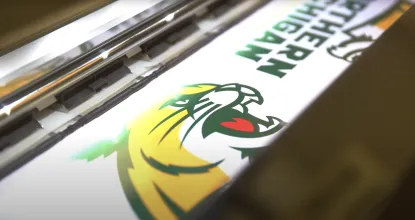NMU Public Safety Warns of Internet Scams
NMU Public Safety is warning that an increase in internet scams of international origin has ushered in the start of the fall semester. Two NMU students recently fell prey to what they assumed were legitimate offers and lost money. Detective Guy LaPlante said one was promised a $9,000 scholarship if he sent $250 from a credit card or checking account. The other lost nearly $2,000 in a financial shell game after applying for a job advertised on a reputable career website.
LaPlante said the employer listed on the site was a real Marquette firm, but the scammers made up fictitious names and began an email exchange with the student applicant. They sent her a $2,000 check with instructions.
“They told her to deposit it in her account and take out her first week’s payment of $180,” LaPlante said. “She was told to send them the remaining balance to pay for some household goods being shipped to her address. But they told her to wire the money through Western Union. Banks usually put a three-day hold on deposited checks, so that original $2,000 check they sent hadn’t had a chance to clear her bank before all this happened. It was her money she was sending back and they stopped payment on their check before the hold expired. This one was gutsy.”
Criminals recognize there are more potential targets when the fall semester begins at universities, so they escalate the number of phishing attempts in the hope of catching even a few students off guard. The FBI is brought in on international cases, but LaPlante said it is hard to trace the activity back to a single source because of technology. The cities of Marquette and Houghton have also reported various scams.
“Law enforcement agencies are limited on what they can do when it’s coming from out of the country,” he said. “Some banks will work with scam victims to try to recoup their money, but the goal is to avoid getting into that situation to begin with. Raising awareness and educating people is our best defense. It’s tough because some of these emails and offers look legitimate with logos and everything. But if it sounds too good to be true, it probably is. If it’s a promise of free money, prizes for contests you didn’t enter or having to send money somewhere to apply for a job, we urge people to call law enforcement or their financial institutions to check first if it doesn’t seem right.”
For more information, or to report a scam, call NMU Public Safety at 227-2151.
